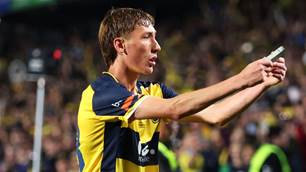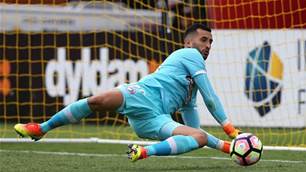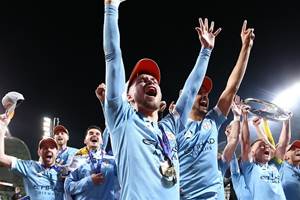How are A-League clubs funded? A recent Four Corners investigation shows that the answer to that question is neither straightforward nor easy to hear.
The investigation detailed the dubious and often unknown ownership structure of some of the A-League's biggest clubs. The program paid particular attention to four A-League and W-League clubs: Melbourne City, Sydney FC, Adelaide United and the Brisbane Roar.
While the issues raised were somewhat different for each club, Four Corners did pose interesting questions and concerns about the ownership groups of clubs discussed.
The first club covered was Melbourne City, who are part of the wider City Football Group. The global company operates ten different football clubs around the world including Manchester City and New York City FC, is valued at over six billion dollars, and is owned by Sheikh Mansour Zayed Al Nahyan.
His highness is a member of Abu Dhabi's royal family and the deputy prime minister of the United Arab Emirates. The program highlights questions human rights issues in the United Arab Emirates.
According to Sam Klintworth, the chief executive of Amnesty International Australia who was interviewed by Four Corners, City Football Group's investment in Melbourne City is a textbook example of "sports washing":
“People associate sport with positivity, with achievement, with prowess and athleticism, with achievement, and this can be used in what we call sportswashing,” said Mr Klintworth.
“And sportswashing, essentially, is taking that positive attribute that’s associated with sport and using it to improve your reputation.
“So essentially that can be leveraging off the glamour, the access, the universal appeal of sport to improve your brand, to disguise or divert away from human rights violations.”
Four Corners further discussed the ownership of Sydney FC by Russian national David Traktovenko, who the program links with Vladimir Putin.
They also delved into Adelaide United, currently owned by a Dutch consortium whose owner's identities are kept anonymous.
The surprising fact was stated by Greg Griffin, a lawyer who was part of selling Adelaide United to the consortium in 2018. According to Mr. Griffin, the ownership structure was kept anonymous at the time of the purchase.
“The only person I knew in the consortium, or the front person, was Piet van der Pol, who had been a player agent for one of our players.
“He said he represented a consortium out of Holland. And that’s as much information as we were ever given
“It’s clearly not ideal, and I think it’s probably unheard of in most European leagues, where ownerships are very transparent," said Mr. Griffin.
The program finished by covering the Brisbane Roar's owners, Indonesian corporation the Bakrie group. Four Corners went into the roller coaster of events that have transpired with the club since the purchase, including a period of time where players were not paid.
The program does disclose the significant amount of investment that all these owners have put in their clubs, in terms of both facilities and players. This has arguably helped raise both the women's and men's game's standards and potential.
However Mrs. Bonita Mersiades, who from 2007-10 worked in corporate affairs for the Football Federation of Australia, highlights the question as to why the A-League does not have the same transparency rules as other foreign nations, thus ensuring a basic tenet of good governance.
“They’re private entities operating in a sport, and sport has a level of transparency and accountability,” Ms Mersiades said.
“We demand a level of transparency and accountability from sport because it is something we all engage with and it is something that we should be aware of who are the owners, how they’re financed, how they’re structured and why they’re here and what they’re getting out of it.”
Part of the problem with these highlighted transparency and accountability issues is that Australia football clubs are run as private companies and are therefore not legally obliged to disclose their finances and investors.
While none of the information discussed by Four Corners is new, the program further shows the lack of transparency that overshadows some of Australia's biggest association football clubs. The issue of the impact of foreign ownership, including the changes they can impose on local clubs, were also covered by the program.
While Australia is not the only country whose top flight football clubs' ownership may raise eyebrows, a situation that exists elsewhere in the AFC for example, the program did raise interesting questions about accountability, foreign control and sportswashing in Australian football.
For those interested in watching the episode it is currently found on Four Corner's Facebook. You can access the show using the following link.
Related Articles

Socceroo-in-waiting seals Championship deal

Fringe Socceroo swerves A-League to remain in Europe after Fulham exit















